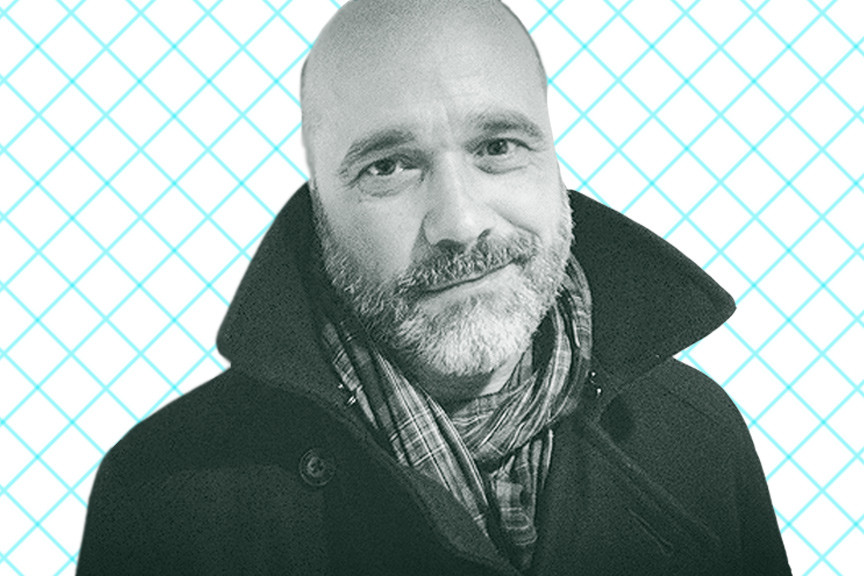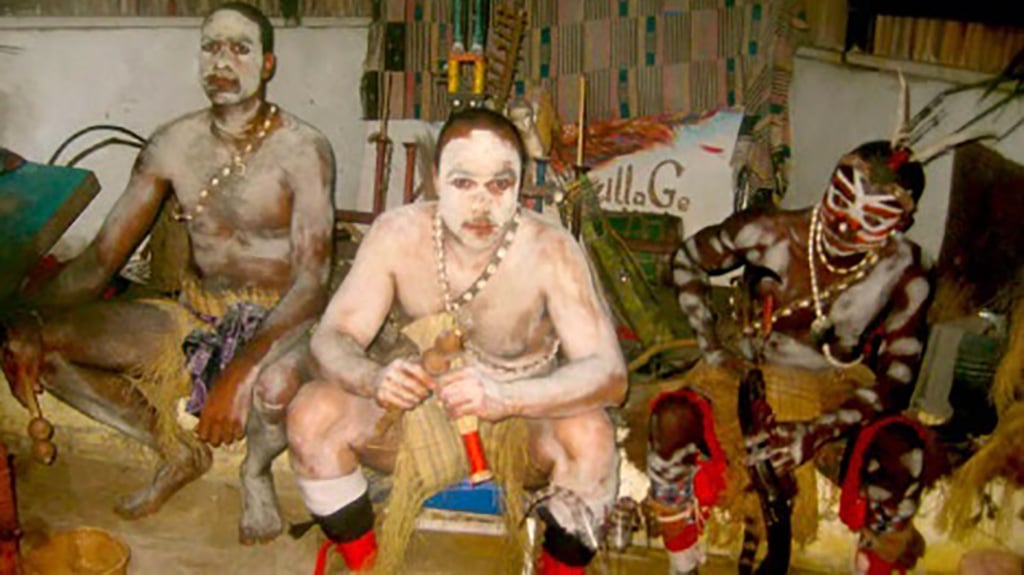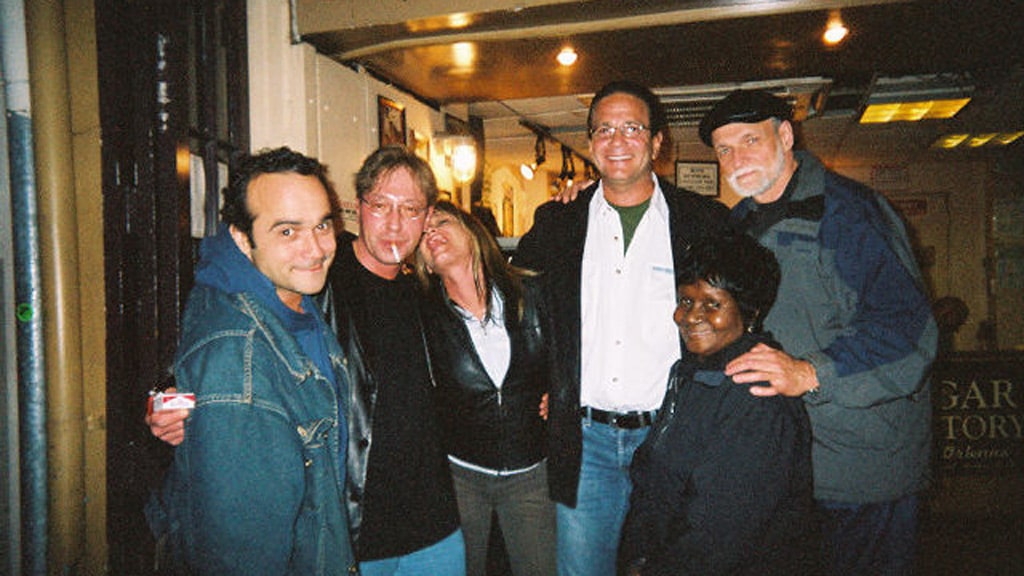Former Underground Provider, Dimitri Mugianis, on the Regulation of Ibogaine | Part 7
“Prescription is not about accessibility, by definition it’s about restriction. Unless we start to use psychedelics as a way to tear apart these structures and build new ones in their place, then I think it’s all a revolving door.” Read the full series.

Psymposia is a 501(c)(3) nonprofit research and media organization that offers critical perspectives on drugs, politics, and culture. We rely on contributions from our readers and listeners. Your support is vital to sustaining Psymposia.
Support Psymposia’s independent journalism on Patreon and help us drive the Mystery Machine! We’re a bunch of meddling kids who are unmasking the latest shenanigans on the psychedelics beat.
Dimitri Mugianis is well known in the ibogaine world for his work as an underground provider in the early 2000’s, and for his fiery no-nonsense approach to psychedelics, drug policy, and social justice. Dimitri currently works at the New York Harm Reduction Educators and is the founder of We Are The Medicine, a group working to center conversations surrounding spirituality and drug use.
What follows are the highlights of our conversation. Knowing that Dimitri infuses a political praxis into his work, we were particularly interested in his perspective on the regulation of ibogaine in the United States.
So, what’s your relationship with ibogaine?
I first heard about ibogaine probably in 1991 or 1992. I was injecting heroin, getting high with some people, Greta and Adam Nodelman. They were involved with Howard Lotsof in Holland. Adam was American and Greta was Dutch. They were involved in the anarchist movement, the squatters movement, and so forth. They told me about this thing called ibogaine that they had both taken. They said it was a life changing experience. That was the first time I ever heard anything about it.
It took me probably about 10 years before I actually took ibogaine. I was around it in New York, so I ended up contacting Dana Beal and he told me where to go. I went to Holland to do it. At that point I had been using for 20 years, injecting heroin and cocaine. I was also on methadone, so my habit was very big. My pregnant common-law wife had died, many of my friends had died, so I just made the move.
I did the treatment right outside of Amsterdam, and afterwards I never had a desire to use again. It was an incredibly grueling process. I went right off of methadone into the treatment. I took iboga actually, not ibogaine, for the first time. It was a powerful experience. I didn’t go through the process of physical withdrawal that I knew would be associated not only with heroin withdrawal, but methadone withdrawal – which is crushing. I spent the next 3 months in Greece, where my people are from.
I came back to the States and continued in my recovery. I enrolled in 12 steps, but I had a burning desire to help others who didn’t have access to this treatment. So I began to administer ibogaine to people in the underground. For some of that I worked with Eric Taub, one of the pioneers in the ibogaine world, and we handed out fliers in front of methadone clinics. I treated over 500 people and was eventually initiated into Bwiti, in Gabon. I went back 6 times, studying and being involved in ceremony, and eventually I incorporated the ceremonies into my work.
And then in 2011, I was preparing for the last treatment I was going to do in the States before burning out, and I was arrested by the DEA – and that’s a whole other story.
Have you remained in touch with any of the people who you provided treatments for?
I’m still in touch with a lot of them. Many people that I’ve worked with have framed it in a positive light. Not everyone, some of them just say they threw up a lot and saw weird shit, or didn’t see anything.
But I can tell you one story about a guy named Marcus. When I met Marcus he was kicking methadone and in really rough shape. We were doing the treatment and on the 2nd day he ended up running off. This was very early in my practice and we didn’t know how to keep people in, and it was just a bad scene.
Weeks later, I was really worried about him and happened to see him in the park. He was carrying CD’s under his arm, to sell for money, and he was wearing the same t-shirt he was wearing when he ran out. He was greasy and looked tired. And when he saw me he dropped the CD’s, burst into tears, put his arms around me, and told me it had changed his life. But he was still using, and Marcus eventually OD’d and died. He’s been dead maybe 6 years now.
I’ve stayed in touch with a lot of people and some haven’t used. Some have. I think the idea of a linear healing, with sobriety as the final result, produces shame. When people come back from these experiences, there’s all kinds of things that can be learned. Whether it’s around abuse and trauma, identity, sorrow, grief, all those things.
I’ll tell you something. Tomorrow I’m going to the funeral of someone who’s done ibogaine more than anyone I’ve ever met. I mean he probably did ibogaine over 20 times, flood doses. He died from an overdose last weekend, and he was like my little brother.
So I think that yes we need more maintenance. Methadone, Subutex, etc… should be more available. Yes, we need more treatment facilities. Yes, we need 12 step models and alternative models for those folks whom 12 steps doesn’t work for. Yes, we need harm reduction facilities. Yes, we need holistic healthcare. Yes, we need psychedelics.
But this brother did it all. And he still couldn’t stop.

You’ve been on both sides of the coin, so to speak – as someone who’s personally faced addiction and lost friends to it, and as a provider for people who didn’t have access to traditional treatment models. Given your experiences, and your politics, what are your thoughts on the movement to regulate ibogaine in the United States?
I think it’s a really complex question. My first thought is that it could be a helpful drug, but I think the existing medical paradigm is extremely damaging. Not only the medical paradigm, but our economic structure, which I think the psychedelic movement is desperately trying to be a part of. To me, it really shows the limitations of these drugs and these practices. The problem is that we come out of these powerful experiences and we immediately try to find a way to reintroduce them to these destructive paradigms that are destroying life on the planet.
So I think we need to have a structural analysis and approach to any sort of treatment modality. You have to look at what that system is looking for, and that system is not looking for detox – it’s looking for maintenance. There’s a lot of good reasons for maintenance approaches, but we also have to look at the prospect of turning someone into a perpetual consumer.
Many of the proponents of ibogaine are calling it a cure, but they’re looking at it in a linear way – with a beginning, a middle, and an end. In my experience with iboga it simply doesn’t work that way. How many people have actually taken it and changed their lives, or have stopped using drugs permanently? It’s in the thousands. Not the hundreds of thousands, and I don’t even think in the tens of thousands. So the numbers aren’t even there.
And if it were to get through the entire legislative process it would be put into a clinical setting. So what I would ask your readers is, “Why is the best place to take psychedelics with a shrink?”
I think that if you look at it, we’re handing these tools over to folks who have not stood the test of moral authority. I think they failed it drastically. I don’t think that the medical establishment has the moral authority to be the gatekeepers of this or any drug.
Again, when we talk about sobriety as the final result, it produces shame. It produces the same toxic relationship to oneself that brings people into addiction in the first place. I call it “psychedelic gaslighting”, the idea that there’s no such thing as a bad trip. That if you had a bad experience it was because you didn’t “work” hard enough, you didn’t let go. Fuck letting go. It’s just more shaming. We shouldn’t always try to reframe the experience when somebody has a bad time. We should stop the gaslighting.
So do I think it’s a good thing? I think that almost everything that comes out of the system at this point is just poisoned fruit. Say we bring ibogaine into the for-profit medical model we have now, that gives insurance companies the power to decide who gets treated – so who’s got good insurance, who’s got bad insurance, right?
We have to remember that prescription is not about accessibility, by definition it’s all about restriction. Unless we start to use psychedelics as a way to tear apart these structures and build new ones in their place, then I think this is all a revolving door.
You mentioned that someone may only take ibogaine a few times throughout their life, but microdosing is a hot topic right now. How do you feel about microdosing ibogaine, and how does it fit into a regulatory model?
I don’t think we can look at it in a vacuum. Let me just say that microdosing has been happening for thousands of years in Gabon. People take small amounts of it – and it’s great.
I just want to say it out loud. These drugs – psilocybin, MDMA, LSD, iboga, ayahuasca – are drugs that get you high. And they can be fun. I know it’s not politically correct to say that. No matter how many fucking naked Burning Man parties you’ve been to, you’re Protestant and you want to call this shit work. Ibogaine is a great aphrodisiac, it’s great to dance on, and it’s great to just walk around on.
We’re always looking for work. You know, all this shit about LSD helping people in Silicon Valley be more productive; I would hope that the opposite is true. I’d hope that we take psychedelics to be less productive in this system. Again, we’re in a Protestant, capitalist society and we can’t think outside of that.
So what I’d say about microdosing is let’s take the professionalism out of it. Why do we have to professionalize it? You don’t need a professional to microdose. I’ll break it down for you: take a little bit. If it’s not enough, take a little bit more. If it’s too much, take a little bit less next time. End of story. You don’t need a fucking shaman. You don’t need a fucking shrink. You don’t need a doctor, or a social worker, or a corporation to tell you how to do that. Real simple. And if it doesn’t seem to be doing you any good, stop taking it.
Microdosing done.

Do you have any closing thoughts for us?
Although ibogaine can be dangerous, I think the greatest impact from it will come from access without the even more dangerous contact with professionals. I think one reaction to the over-medicalization and high price of boutique ibogaine clinics is that a lot of people are just getting it off the internet to dose themselves. I think this is the most important trend in the movement today, and something that’s not really being talked about – or is only being talked about negatively.
Obviously there are great dangers involved, but there are also benefits. It’s a great failure of the ibogaine community, that we often fall into prohibitionist attitudes such as “Just Say No.”
Collectively, we need to come up with a harm reduction strategy for self-administration. People are taking ibogaine themselves and will continue to do so, so we need to address it.
I’m heartened to see folks being able to buy the drug online and self administer; however, I don’t believe iboga has the potential to significantly impact the so-called heroin epidemic. The plant itself is in great danger – some people are even saying it’s on the verge of extinction – so we need to be mindful that with accessibility comes exploitation.
Yet, despite my misgivings about the medicalization and commodification of ibogaine, the truth is that my life has been transformed, my body transmuted, and my spirit forever changed by this molecule. It set me on a journey of healing that has taken me around the world, even to jail. And it continues to inform me, challenge me, and propel me. I am blessed.
Read Part 8: How Not to Do Ibogaine 101 with Juliana Mulligan
Hey! Before you go… Psymposia is a 501(c)(3) non-profit media organization that offers critical perspectives on drugs, politics, and culture. We strive to ask challenging questions, and we’re committed to independent reporting, critical analysis, and holding those who wield power accountable.
Our perspectives are informed by critical analysis of the systemic crises of capitalism that have directly contributed to the unmitigated growth of addiction, depression, suicide, and the unraveling of our social relations. The same economic elite and powerful corporate interests who have profited from causing these problems are now proposing “solutions”—solutions which both line their pockets and mask the necessity of structural change.
In order for us to keep unpacking these issues and informing our audience, we need your continuing support. You can sustain Psymposia by becoming a supporter for as little as $2 a month.
Jordan May
Jordan May is a writer who explores the intersections between drug policy, psychedelics, and community engagement.





